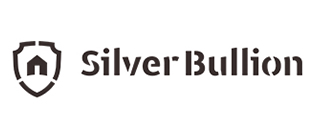Navigate
Article List
- Gold: What is the Official Sector Telling us?
By Rhona O’Connell, Head of Market Analysis, EMEA & Asia, StoneX Financial Ltd
- Getting to Know FGLD: An Alternative to Physical Gold
By Bursa Malaysia Derivatives Berhad
- Unlock the Powerful Edge of Trading Gold Futures
By Chin Yi Xuan, General Manager, Algopedia
- Malaysia’s Gold Market
By Elvis Chou, Senior Consultant, Metals Focus
- SBMA News
By SBMA
Article List
- Gold: What is the Official Sector Telling us?
By Rhona O’Connell, Head of Market Analysis, EMEA & Asia, StoneX Financial Ltd
- Getting to Know FGLD: An Alternative to Physical Gold
By Bursa Malaysia Derivatives Berhad
- Unlock the Powerful Edge of Trading Gold Futures
By Chin Yi Xuan, General Manager, Algopedia
- Malaysia’s Gold Market
By Elvis Chou, Senior Consultant, Metals Focus
- SBMA News
By SBMA
Malaysia’s Gold Market
By Elvis Chou, Senior Consultant, Metals Focus

Like many other South East Asian markets, Malaysians are familiar with using gold as a store of wealth, a currency hedge, or as gifts during cultural or religious ceremonies. That said, Malaysia is perhaps best known in the precious metals industry for being a gold jewellery exporter.
For example, in 2019 (pre-COVID), Malaysia exported $1.4 billion worth of gold jewellery, which ranked 13th globally. With the onset of the pandemic, exports in 2020 and 2021 dropped sharply before enjoying a healthy recovery last year, with gold jewellery shipments returning to pre-COVID levels of $1.37 billion.
Regarding investment, several options are available to Malaysians, including jewellery, bars and coins, digital tokens, gold accumulation programs, exchange-traded products, or saving plans available through a gold account.
Turning briefly to mining, there are 14 gold mines in Malaysia, with Penjom and Selinsing being the main producing areas; nearly 80% of the domestic output comes from mines in these two locations. According to our data, Malaysia’s gold production has remained steady at around 2.2 to 2.5 tonnes from 2020 to 2022.
Development of the Gold Market
Physical gold demand in Malaysia has varied noticeably over the past 10 years, reflecting changes in the domestic tax regime and investment behaviour, combined with the impact of the pandemic, all of which are captured in the following chart.
Malaysia Domestic Gold Demand (tonnes)

Looking back at some of the key developments in the local gold market, in April 2015, the Malaysian government introduced a Goods & Services Tax (GST) of 6%. Together with the devaluation of the ringgit, this greatly increased the cost of jewellery production, leading to a sharp drop in both jewellery exports and domestic demand.

In January 2016, the government introduced new amendments for the import of gold bullion. Importers would be granted exemption from GST for gold bars used solely for investment purposes (IPM), with certain conditions applied. In other words, kilobars, gold wafers, and coins had to be cast or minted by LBMA-accredited refineries. Importers also needed to apply for a permit to qualify for GST exemption to import IPM. Gold bars that were imported for jewellery fabrication would continue to be levied at 6% GST.
In May 2018, after the Malaysian general election, a new government was formed that abolished the GST. A new tax regime, the Sales and Service Tax (SST), was enacted later that year, resulting in the gold bars and gold jewellery trade becoming exempt from taxation. However, entities were required to register for the approved trader scheme to import bullion bars. The additional processes and logistics affected the competitiveness of small and medium bullion wholesalers and jewellery manufacturers. As a result, there was no significant upswing in sales after the removal of GST and the subsequent exemption from SST. Nonetheless, the tax-free status for gold and gold jewellery provided more straightforward access for overseas players, with the likes of SK Jewellery from Singapore and Chow Tai Fook Jewellery from China entering the Malaysian market.
Fast forward to the pandemic, in keeping with many other countries, Malaysia imposed a lockdown, which was short-lived (lasting from March 18 to May 4, 2020), resulting in retail gold jewellery shops and factories not being able to operate. As a result, retail demand fell by “just” 12%, while gold jewellery exports slumped by 46% from 2019 to 2020. However, thanks to rising gold prices and the government’s fiscal support program, retailers and manufacturers were supported by a relatively healthy domestic market.
Physical gold demand in Malaysia showed improvement throughout 2021, despite a short period of Movement Control Order, which was a full lockdown in June 2021 with strict restrictions on movement and a total shutdown of almost all sectors except essential economic and service sectors.
In 2022, Malaysia’s jewellery and retail investment sectors experienced a stronger recovery, with the former increasing by 24% year-on-year to over 13 tonnes and the latter rising by 27% year-on-year to 5.5 tonnes.
Jewellery Fabrication and Demand
Jewellery stores are the most common channel for Malaysians to buy gold, with approximately 3,500 retail jewellery shops across the country. Nearly 90% of Malaysia’s gold jewellery market is made up of 22K gold, while the remaining balance consists of 18K and 24K gold. Three branded publicly listed jewellery companies – Tomei Consolidated, Poh Kong Holdings Bhd., and Habib Jewels Sdn Bhd – operate a total of about 200 retail outlets.
Malaysia is also a major exporter of gold jewellery. Before the pandemic, gold jewellery manufacturing stood at 44-52 tonnes, with 75-80% fabricated in Penang and Butterworth. The primary destinations for Malaysia’s gold jewellery exports are Singapore, the UAE, and Hong Kong, according to our data.
Malaysia Gold Jewellery Export (Million USD)

Gold Products
Buying physical gold is a popular option for retail investors in Malaysia because of its high anonymity. Gold bars with 99.99% purity or 24K, weighing 1g, 5g, 10g, 20g, 50g, and 100g are available at jewellery shops, post offices, online and offline bullion traders, and commercial banks. Coins are also popular among gold investors and collectors.
In particular, two well-accepted coins are the “Kijang Emas” (barking deer) gold coin and the gold “dinar” coin. The Kijang Emas is legal tender and available in three weights and denominations: 1oz (RM200), ½oz (RM100), and ¼oz (RM50). They are minted by the Royal Mint of Malaysia and were first issued in July 2001. The purchase and resale price of the Kijang Emas is determined by the prevailing market price of gold.
The gold “dinar” coin was introduced in August 2010 as an alternative to paper money. It comes in four sizes: 4.25g (1 dinar), 8.5g (2 dinars), 21.25g (5 dinars), and 42.50g (10 dinars). A large variety of dinars are available in Malaysia, including those used by the government, such as the Kelantan dinar, Perak dinar, or Malaysia dinar.
Gold Investment Accounts
Annual retail investment for Malaysia (covering purchase of bars and coins) from 2018 to 2022 was: 2018: 6.0 tonnes, 2019: 5.4 tonnes, 2020: 3.9 tonnes, 2021: 4.4 tonnes, 2022: 5.5 tonnes.
Gold investment accounts and gold accumulation plans offer alternatives to buying physical metal. They have grown in popularity due to low entry thresholds and low transaction costs. A handful of commercial banks and private institutions, such as Bank Muamalat, Affin Islamic Bank, Kuwait Finance House, Al Rajhi Bank, Maybank, CIMB, and Public Bank, offer gold investment accounts. The account allows the holder to invest in gold without the need to take physical delivery. The metal can still be withdrawn, holdings converted to cash, or funds can be withdrawn or credited to a designated cash account. Conversion and service fees typically apply for such transactions. The minimum purchase unit for gold accounts can be as low as 5 ringgit, or 0.1 gram, and holdings can be easily transferred to another account.
There are also gold accumulation/savings programs (GAPs) – long-term gold savings plans backed entirely by physical gold. They offer a straightforward method of owning gold through a savings vehicle, and investors can withdraw physical gold.
Tax Incentives
There is no import or export duty on gold bullion or jewellery in Malaysia. Precious metals products that comply with the Investment Precious Metals (IPM) criteria remain tax-free, and gold jewellery is fully exempt from SST.
IPM coins are also exempt from SST if they meet purity criteria and are, or have been, legal tender in their respective country of origin. Proof, numismatic and collector coins are not recognised as IPM and are subject to SST at the standard rate of 6%.
Shari’ah Standard on Gold
Shari’ah Standard on Gold was launched by the Accounting and Auditing Organization for Islamic Financial Institutions (AAOIFI) in December 2016. The Fatwa Committee of Malaysian National Council for Islamic Religious Affairs issued the Shariah parameters for gold investment in February 2017 to facilitate the creation of Shariah compliant products. The investment process is strictly governed by Bank Negara Malaysia through the muamalah and shariah principles.
Dirhams and Dinars in Islam
The Islamic dinar weighs 4.25 grams and is struck in 22K gold, while the dirham is available in pure silver, weighing 3 grams. The dinar is used for savings, paying zakat and dowry, buying or selling goods, and is a legitimate medium of exchange.
Futures Market
In Malaysia, the demand for physical gold remains more popular than exchange-traded gold products. However, Bursa Malaysia Derivatives Berhad launched the revamped Gold Futures (FGLD) Contract in September 2022. This contract is a US dollar-denominated and Ringgit Malaysia-settled gold futures contract, providing market participants with exposure to the international gold price.
The TradePlus Shariah Gold Tracker (“Fund” or “GOLDETF”) is the only gold exchange-traded product (ETP) listed on Bursa Malaysia, the country’s stock exchange. It was launched in December 2017 but has yet to gain much traction among local investors.
Bursa Malaysia
Bursa Malaysia Berhad oversees both the Malaysia Stock Exchange (MSE) and Bursa Malaysia Derivatives Berhad (BMD). The Securities Commission Malaysia serves as the supervisory board of the BMD.
Federation of Goldsmiths and Jewellers Associations of Malaysia

ELVIS CHOU is a senior consultant at Metals Focus, leading its precious metals research team in Southeast Asia and East Asia. He has 23 years of experience and previously worked in product development for Materion and Solar Applied Materials. Metals Focus is a leading independent precious metals research consultancy. With a team spread across nine countries, the company provides world-class statistics, analysis and forecasts to the global precious metals market.

























